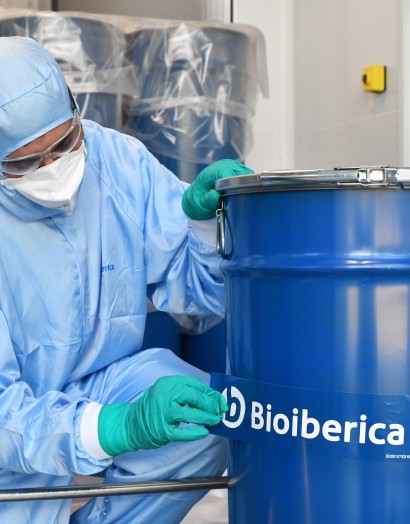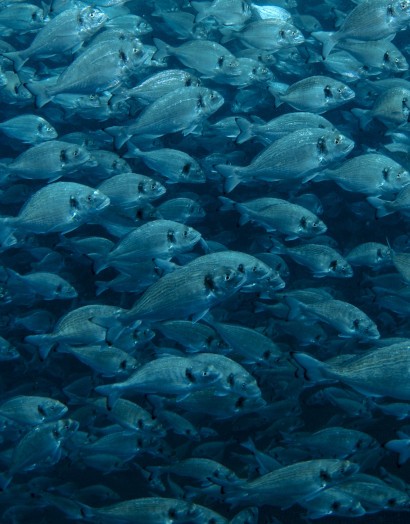Strategic sustainability in the face of climate change
We advance our sustainability strategy in the face of climate change through the verification of our carbon footprint according to the GHG Protocol, the adoption of the European taxonomy of sustainable activities, and adaptation to the new CSRD regulation, consolidating a circular business model that integrates the One Health philosophy into every business decision.
Coinciding with World Energy Saving Day, we share the successful verification of our carbon footprint. This is an international standard for greenhouse gas accounting and management, carried out in accordance with the GHG Protocol. It is a milestone that provides us with a clear and reliable understanding of the environmental impact of our operations and sets the path toward decarbonization and sustainable growth.
Climate change has become one of the most important and urgent challenges of our time. Its effects are already evident and reflected daily: extreme weather events, accelerated loss of biodiversity, scarcity of natural resources, and direct consequences on human, animal, and plant health.
Beyond these environmental impacts, climate change also has significant operational and economic effects on businesses: supply chain disruptions, costs associated with extreme weather events, and the need to invest in adapting facilities and processes to future conditions.
Addressing this reality requires more than good intentions: it demands integrating climate action into the core of business management, hand in hand with sustainability as a strategic element.
- alignment
- integration
- transparency
Each of these contributes a specific dimension to advance in the fight against climate change, strengthen our circular economy model, and ensure a positive contribution throughout our value chain.
Bioiberica's #OneHealth philosophy reinforces this approach: every strategic decision takes into account the health of people, animals, and plants, as well as the resilience of the ecosystems on which our activity depends. The effective integration of strategic sustainability turns climate action into a central component of business management, promoting a solid, competitive, responsible, and resilient business model.
By analyzing our carbon footprint in accordance with the GHG Protocol, we can define specific objectives and implement action plans that guide us toward a more environmentally responsible business model aligned with global climate goals and the expectations of our customers, partners, and society.

Alignment: a circular and sustainable business model
Sustainability has been part of Bioiberica's essence since our inception. Our business model is based on the circular economy: we transform raw materials of natural origin into high value-added products for human, animal, and plant health, minimizing resource use, reducing waste, and generating a positive impact throughout the product life cycle.
This approach allows us not only to mitigate emissions and reduce operating costs by optimizing resource use and minimizing waste, but also to adapt our operations to future climate risks, ensuring the resilience of our value chain. It's not just about doing more with less, but about creating a production model capable of protecting its environment from the impacts of climate change.
We have gone a step further and adopted the framework of the European taxonomy of sustainable activities to evaluate our alignment with it. This evaluation will allow us to ensure that our business model and activity are actively contributing to the European Union's environmental objectives regarding climate change adaptation and mitigation, and particularly, for the transition to a circular economy and pollution prevention and control.
Integration: making sustainability a cross-cutting principle
Beyond specific initiatives, actions, and projects, at Bioiberica we understand that sustainability must be an intrinsic factor in our strategy, management processes, and day-to-day actions. Our vision is clear: sustainability is not a project, it's a way of managing.
This involves integrating the climate dimension into strategic planning, risk management, and stakeholder relations, so that our sustainability commitments—such as carbon footprint reduction targets aligned with SBTi—extend throughout our activity and are consistently applied across all our operations and throughout our value chain.
To this end, we are undertaking a transformation process aimed at improving the effective integration of sustainability at Bioiberica, which will enable us to ensure a better response to present and future challenges.
At Bioiberica we have been identifying climate risks and opportunities and measuring our carbon footprint under TCFD and CDP standards. Now, with adaptation to the new European CSRD regulation, we are taking a further step, offering a complete and verifiable view of our contribution to climate change mitigation, strengthening the trust of our value chain and stakeholders.

Transparency: communicating with rigor and responsibility
Transparency is key for climate action to be effective. Acting is not enough; it is necessary to measure, report, and communicate impacts in a clear and comparable way. Transparency strengthes accountability and allows our stakeholders to know our climate commitment and performance.
At Bioiberica we have been identifying climate risks and opportunities and measuring our carbon footprint under TCFD and CDP standards. Now, with adaptation to the new European CSRD regulation, we are taking a further step, offering a complete and verifiable view of our contribution to climate change mitigation, strengthening the trust of our value chain and stakeholders.
Strategic commitment that transforms
Alignment, integration, and transparency are the pillars that guide our action in the face of climate change. Thanks to them, we incorporate strategic sustainability into every decision, investment, and project, which translates into impact reduction, risk anticipation, and value generation for the planet and life. Sustainability is not an isolated effort: it is the way we act today to protect the future.



